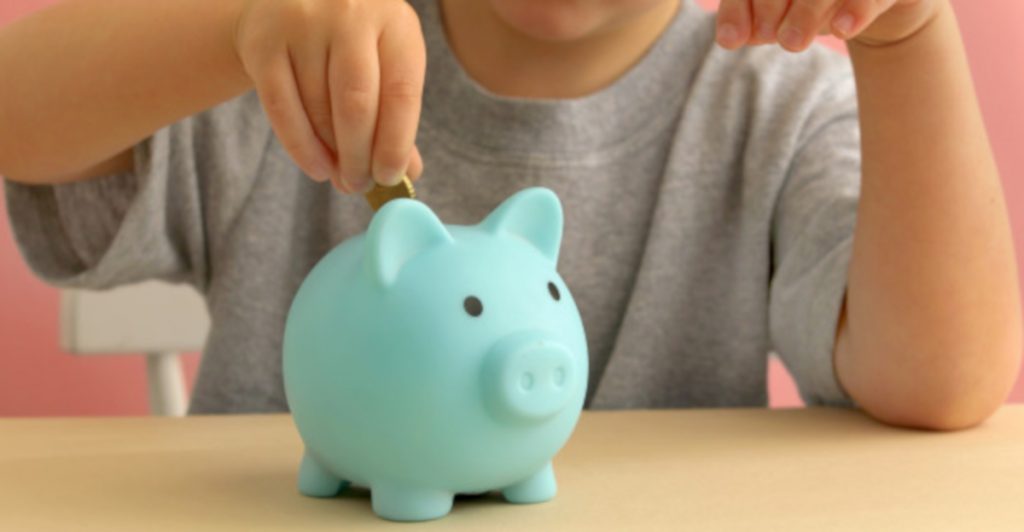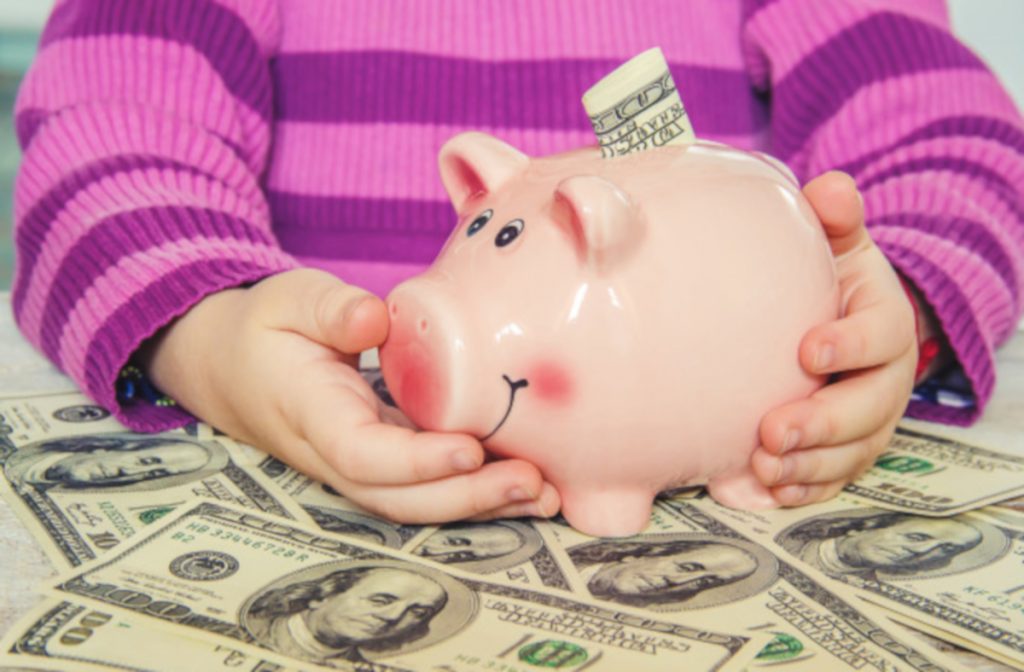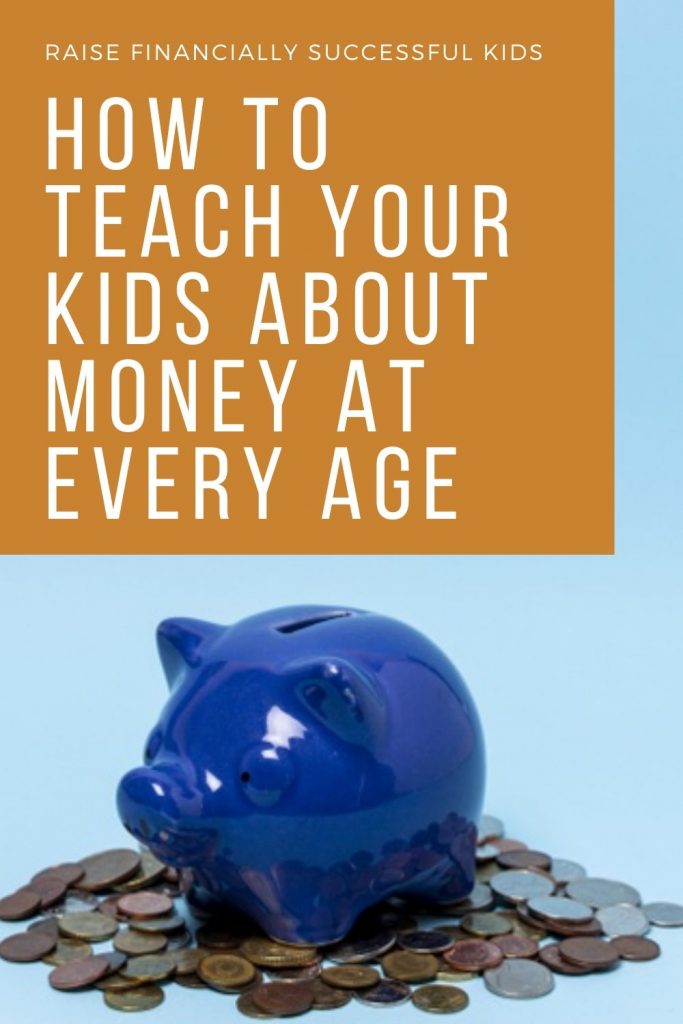
Here are some tips that can be incorporated into the daily lives of families and that will make a big difference in the financial future of children
As important as health and education habits are the financial habits of a family. The way people handle their finances says a lot about their balance even in other areas, after all, economic life reflects much of the other social, professional and family aspects. This also means that it is from this financial culture that children will form their awareness of money, consumption, expenses, values and, above all, financial responsibility. Teaching children how to save money in order to achieve what they want will also help them to be self-confident and have a healthy financial life in the future.
According to the economist Giovani D. Formenton, to have controlled finances, the most important thing is not to be good at math or to understand everything about the financial system: it is a matter of habit and willpower. “These are two things that need a lot of training. And like anything else, the sooner you start practicing, the more skilled you become,” says the economist. That’s why it’s important for parents to stimulate their children in this process as well, but of course, always respecting the cognitive development of each child.
The value of things: is it worth it?
An extremely important thing is the concept of value. “It is fundamental for the child to know that the value of things is not given by ‘how much he pays’ for them,” explains Formenton. This kind of notion should be built in practice from an early age, but when the child is already at the stage where abstract thinking is most complete, it is fundamental to make him/her reflect on these three points:
- Some things have more value than the money we pay and some things have much less value;
- The value of use (actual value of each thing to an individual) varies from person to person;
- There are reasons why things have a different value than others and these reasons may or may not be worthwhile. For example: you can give a toy a great value if it was the first thing you bought in your life, or if it was your grandmother who gave it to you, this value is inestimable. But you can also give a toy great value because you are the only one in your school that has it and that makes you feel superior to others, this value is not worth it.
If dealing with money is not an easy task even for us adults, imagine for a child. But the sooner we start teaching our children financial education, the better the results will be in the future and the child will probably become a financially responsible adult. In a practical way, there are little tips that can be incorporated into families’ daily lives and that will make a big difference in the future. Economist Patricia Palermo has listed some to help you in this process. Check them out:
Teaching by example
If you spend compulsively, do not keep money and do not manage your own finances well, know that this will be a great negative influence for your children. It is the old basic rule of education that applies to all subjects and would be no different for finances: teaching by example is the most effective way to raise a child.
Talk about your work
Sometimes we think some topics are too hard for a child to understand, but the truth is that they are smarter than ever. I’m sure your son or daughter will understand if you explain that you work to make money and be able to pay the bills at home.
The idea is to show that this is how the world works and that one day it will be their turn to work and earn money as well.

Give allowance to teach, from an early age, the value of money
Delegate some financial responsibilities to your children. Teenagers are more likely to take on more financial responsibilities than children, but regardless of age, it is important to start leaving some financial decisions to them, even if they are young.
For this, giving pocket money is a good incentive. Making some of the money conditional on carrying out some simple tasks, such as tidying up the bed or taking a bath at an agreed time, for example, can also help to show the value of the work for the money. For younger children who have no notion of time, a small weekly allowance can also be used in an educational way.
Presenting with a Piggy Bank and teaching how to save
A great gift idea to teach your kids how to save money in a fun way is the good old Piggy Bank. Putting money into piggy bank and waiting for it to fill up is an attractive activity, which can be encouraged by setting a child’s goal.
Encourage the child to think about why they should keep money at piggy bank. Buying a more expensive toy? To take on a trip? Or to have a party at home with friends? There are many possibilities to teach your child, from an early age, the importance of having an investment goal.
Take your children to the supermarket to help with the shopping and to learn about prices
Going to the supermarket can be a family program. With an air of play, share tasks with the little ones. You can create a competition for them to find the cheapest products on a list or encourage them to save a monthly sum to bring some tasty treats when shopping.
Differentiate “wants” from “needs”
This is another tip to help talk about money with the kids.
Every family has the need to buy food, pay their bills, and cover their health expenses, for example. After covering the basic needs, we work with the wishes, whether it is a nice toy or an unforgettable trip.

Let the child learn
Last but not least, as in this life everything is learning, let your child also learn from his own bad financial decisions. Let him reflect on his decision and deal with the consequences. Be strong and try not to be protective. The lessons we learn through our mistakes are often more memorable than those we learn from our successes. So let your child make a mistake, because it is better for your child to make a mistake with $1, $10, $100 or $200 than with $10,000, $20,000 as an adult.

How do you teach about finances at different ages?
From 2 to 4 years
At that age, your kid already understands that by giving money to someone, he/she gets something in return. Set limits so that your child doesn’t want everything he/she sees in the supermarket, for example. It is important to be firm in these decisions. Jokes and activities that teach him/her notions of quantity, simple sums and subtractions are enough to get him/her off to a good start in his financial education.
Between 3 and 5 years
Between the ages of 3 and 5, children like to be able to decide, so promote learning from everyday acts and introduce new things in a light and playful way. There are a number of little things we can do without changing our routine.
Teach the value of things
Let the children handle real notes and coins – teach them that it has value, and draw their attention when using a note or coin to pay for something. Try shopping at the supermarket using these resources. Avoid the credit/debit card as it is too abstract for children to understand the value of use, as the child does not see the money going away.
Use games to talk about money
At home, play at the supermarket, fair and shop using play money. Explore the idea that different things have different prices and that there is no money to buy everything all the time.
Use a piggy bank
Introduce the little ones to a piggy bank. Give preference to a transparent one. Elaborate with it a goal and encourage it to join (contribute whenever possible with some coins). Remember to elaborate a simple, easy to reach objective and then invite him/her to count the amount saved and how much is still to be achieved. Ask questions such as: How can we save? And when you go to buy something ask him/her if he/she prefers to buy or save and then talk about the decision made.

Program yourself
Learning to wait is one of the most important lessons for a healthy financial future. A cool way to try to make the idea of waiting concrete is to build a calendar and count the days for the arrival of something that he/she expects a lot and you can’t advance, like the premiere of a movie or a birthday party.
Show the limits
Remind them that there are things we need to pay for and others don’t, and yet they have value and are important as playing with a friend in a garden. This helps the child understand that money buys a lot, but it doesn’t buy everything.
Explain the difference between need and desire
When you go to the supermarket, use shopping to teach the difference between what we WANT and what we NEED. Ask your child to help you when buying products by asking him or her to sort under the cart what we need and on top what we just want. When it comes to paying, pass on what is needed first and explain that in the event of a lack of money, we should prioritize what is needed.
No waste
At home, invite him/her to be an agent who avoids waste. For example, turn him/her into an POWER SAVER and invite him/she to turn off the lamps in rooms that have no people in the house.
It’s work
Be sure to explain that money comes from work and that people have different jobs.
From the age of 6
Remember that the allowance must be solely and exclusively a financial education instrument. Never reward good behavior or good grades. Rewards for non-daily work, such as washing the car, are permissible. Encourage the division of the resource into two groups: money to spend and money to save.
Help your children to make plans
Trace objectives (feasible) and always encourage the notes of receipts and payments.
The importance of self-control and choices
Remember that by spending we are always making choices, so looking for lower prices is a great way to save. Finally, let them make good and bad choices, and then reflect the results. Children who learn to reflect on their decisions manage their money better as adults.
Don’t hide
At home, don’t push the child away when talking about money in everyday matters. Show the power bill, etc. Invite them to make a list of the supermarket and show how much the things that “appear in the refrigerator” cost. If the family wants to make a trip or any other plan, involve everyone. Goals that everyone is committed to are more easily achieved.
From 9 to 12 years
Help your child understand how much household expenses cost, and thus begin to insert savings practices such as caring for water and food waste into the household routine. Taking them to help you make the purchase of the month at the supermarket is also a good practice for your notion of financial planning.
From the age of 12
It is at this stage that you can begin to explain the concept of value. It is also important that the child gradually learns to take care of his own money, spending only as little as possible and keeping the amount needed to buy something he/she wants or for some future plan. For this purpose, the practice of giving some weekly or monthly quantity may encourage them to better control their consumption needs.



Tags: teachingkidsaboutmoney #howtoteachkidsaboutmoney #teachkidsaboutmoney #howtoteachyourkidsaboutmoney #teachingyourkidsaboutmoney #teachkidsmoney #teachingkidsaboutmoneyandbusiness #howdoistartteachingmykidsaboutmoney? #teachingaboutmoney #teachingchildrenaboutmoney #teachingkidsaboutfinances
Disclaimer: This post may have affiliate links.


